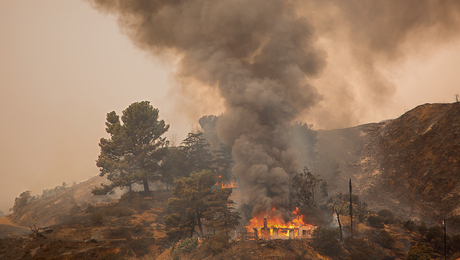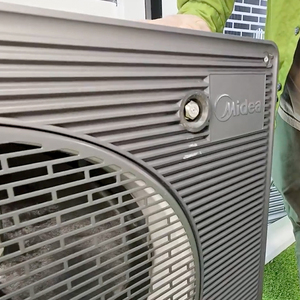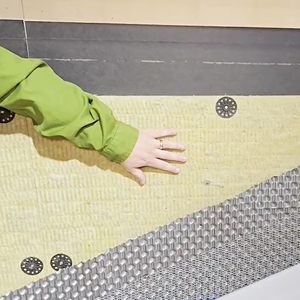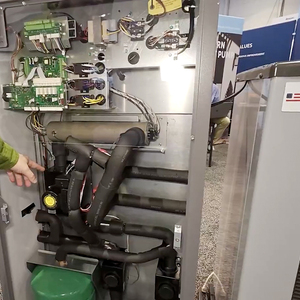I have bought a new home and a new gas range. The city I live in will not allow the appliance store to hook it up to the gas line (the gas line is already in place). Is this something that I can do myself (as a do-it-yourselfer) or do I really need to hire a professional?
If I can do it myself, any helpful tips?



















Replies
mike , for insurance purposes it might be wise to hire the gas company or a plumber or other professional .
It is wise to hire it done.
Not that I have not done it myself a few times.
But gas requires certain types of joint compounds and the pro will run a check on the whole thing. More than once lately I have had them find a problem when doing an installation, and glad of it!
Welcome to the
Taunton University of Knowledge FHB Campus at Breaktime.
where ...
Excellence is its own reward!
You can do what you want, but if the city will not allow the appliance store to hook it up there is a good chance you legally can't do it yourself, your call.
The appliance store is just limitting their liability. Call the local gas company and see if they will hook it up.
That may be true if the local city code requires a license and a permit. The original post wants to do it himself; without knowing what his local code is the most reasonable response is not to do it.
Shacko
but if the city will not allow the appliance store to hook it up there is a good chance you legally can't do it yourself, your call.
With no disrespect intended I cant imagine that being the case BUT I'm of the thinking that if you have to ask you probably shouldnt do it.
Doug
Depends on your location. Up here you are supposed to have a gasfitters ticket and a permit has to be pulled.
Up here you are supposed
Clearify that for me, is that law or is that a recomemdation? Often times a HO can do a lot of the things that a licenced tech is required on someone elses place.
I have never(which dont mean shid) heard of someone having to be licenced to do something like this.
Doug
provincial gas code. Gotta remember that this place is read by people from all over.
I just got up and still groggy, but are you sure Rich about the permit? The permit should have already been pulled to run the line to a future stove. On the top of my groggy head I don't think we (Canada) need a permit for the actual connection. Maybe I'm wrong.
My code book is up stairs beside the sleeping giant (the wife) so I can't look it up.
roger
Don't know about BC, but out here it is considered a new appliance. Same as a water heater or furnace.
Does it always happen........................
yellow teflon ...
gas dope ...
a cressent wrench ...
and a match!
houses don't blow up from a pin hole leak in an appliance line ...
and I like when I find a leak and that little flame shoots out ...
and like even more watching it snuff itself out as I turn the wrench a quarter turn ...
Jeff Buck Construction
Artistry In Carpentry
Pittsburgh Pa
Is that the up to date version of the 'Fan of Death'?
It should be hooked up with a flex connector, no dope or tape on the flared ends.
And what happens if he gets excited with that little flame and turns the fitting the wrong way?
yup ... a flex connector.
nothing wrong with dope in the hose threads and tape around the nipple.
both on the stove and at the gas line.
Jeff Buck Construction
Artistry In Carpentry
Pittsburgh Pa
Yeah, but joe homeowner doesn't usually realize there are 2 different threads on a flex. I've seen a flare shoved into a npt.
I live in the N.E. an analogy would be that you are a sprinkler contractor that runs the whole system for a 10 story building but you can't make the final hook-up of the back-flow preventer without a separate permit and license. The prob. with codes is every city, county, state has an idea of what the code should be. Where I live most appliance stores do not do hook-ups. This is information only.
I am not aware of any national Code that restricts who can or can't do something.
That said, there are lots of local laws and code admendants that restrict who can and can't do something. lots of times they don't make a lot of sense like your sprinkler/backflow example.
I am kinda torn as to wheather lincensing (sp) is that great vs allowing a homeowner work on there own place. I could give lots of examples for both sides.
Years ago I had the local gas company come out to work on a propane refrigerator and the guy checked for leaks with a bic lighter. He even found a leak and fixed it..... Kids don't do this at home unless your name is Jeff Buck
It dosen't matter whether the National or International code has a specific definition who can do certain hook-ups you have to go with the local modifications. My sprinkler/backflow example does make sense, where I live a sprinkler contractor can not work on a potable water system without a plumbing license, to activate the backflow you need another license. Bottom line is that you have to know what the local IDEA is. BTW anyone that uses a lighter to check for propane leaks needs his breeding rights removed. Have a good one.
I'm a DIYer and typically freak out if I'm using anything involving potential loss of limbs, electrocution, or massive explosions.
THAT SAID, I have to say hooking up a gas appliance to an existing gas line is relatively easy. You need one of those Yellow flex-connectors (the appliance store will give them to you) and then you connect one end to the gas, one end to your appliance.
THen make a mixture of soapy water and turn on the gas and coat the joints with the water to see if you have a tight seal. If you do, wipe of the water and you're good to go.
I've hooked up a range and a dryer and am still alive. ;o)
However, the running of the actual gas pipe TO the fixture requires a licensed pipefitter in our particular city.
Edited 9/23/2007 9:42 am ET by darrel
Of course if you lived where I live you would have a 2 pound system and if you didn't know that and thought it was low pressure things could get...................................we'll say, very interesting. The top burner flames just might hit the ceiling. Don't ask how I know.
roger
I did mine myself but its very easy to screw up, My friend a mechanic stopped by and helped me, There right theres different fittings , I would not do it if i were you but no matter who does it take a windex bottle put some dish soap in there with water and spray the fittings when your done, If theres a leak bubbles will show, The gas company guys here walk around with there spray bottles, I have never seen anyone use a lighter before please dont do that.
Our city allows a HO to hook up a gas stove or hot water heater.
That said, when our HW heater died last year I went to the Blue Borg and bought a new one. Installation and drayage for the old one was about $200, so I went for it. (If for no other reason than that hauling it to the damned dump would have been a major pita.)
First thing the plumber said when he saw the old installation (prev HO or someone else installed) was that the hookup was wrong, didn't meet national or local code.
I'd have never known it. Best $200 I've spent. At least the smartest.
Joke: Green paratroop dropping at 2.5k feet, chute wrapped around legs to guy climbing: "Know anything about parachutes?" "No, you know anything about gas furnaces?"
BigBill has got it totally correct. The store is totally limiting their liability. This is a task that anyone with a minimum of mechanical ability can perform.
I find the majority of responses to this thread troubling. There is this sense of fear of doing anything, it is like we have become a nation of the risk averse. I find this thinking the most pronounced in the electrical trade, where if you want to plug in an appliance you better hire an electrician, or else.
Chuck Yeager certainly was not thinking like this when he got into the X-1 and broke the sound barrier-what happened?
first of all, it depends on what 'hook up' means. do you have a gas fitting already right where you need it (keeping in mind some ranges are picky about where it can be, space-wise)? or do you need the pipe run to it? just hooking up the flex connector from the existing fitting is not usually any big deal. tapping into the gas line from somewhere else, running pipe into your kitchen, etc, is better left to somebody who has experience (pro or very competent diy).on the other hand, if you feel the need to ask, maybe you'd better pay someone to do it this time, watch carefully, then you'll know how next time.m
"BigBill has got it totally correct. The store is totally limiting their liability. This is a task that anyone with a minimum of mechanical ability can perform.".... I agree with that statement, I would think that the appliance store got nailed before for hooking up an appliance without a permit or a license and it caused them major $$$. A DIYer can do what he wants as long he gets the proper information and knows his limits, lots of luck.
An interesting thread. I replaced my water heater several years ago without difficulty. Our outside gas meter has a large diameter circular device which has a diaphragm internally. When you shut off the gas at the main this diaphragm collapses and there is a small fitting on the side where you remove the screwed on cap and reach in and pull the stinger out to reset the diaphragm. I usually turn of the gas when I connect up appliances. I use "Rector seal" the yellow stuff in a tube that has particles of Teflon in it. I installed a new gas cooktop and never gave it a second thought (of course I did use the soap and water to check for leaks.) I also wired my house (it passed inspection) and continue to do additional wiring as needed. Guess that makes me a "advanced diy'er" <G>.